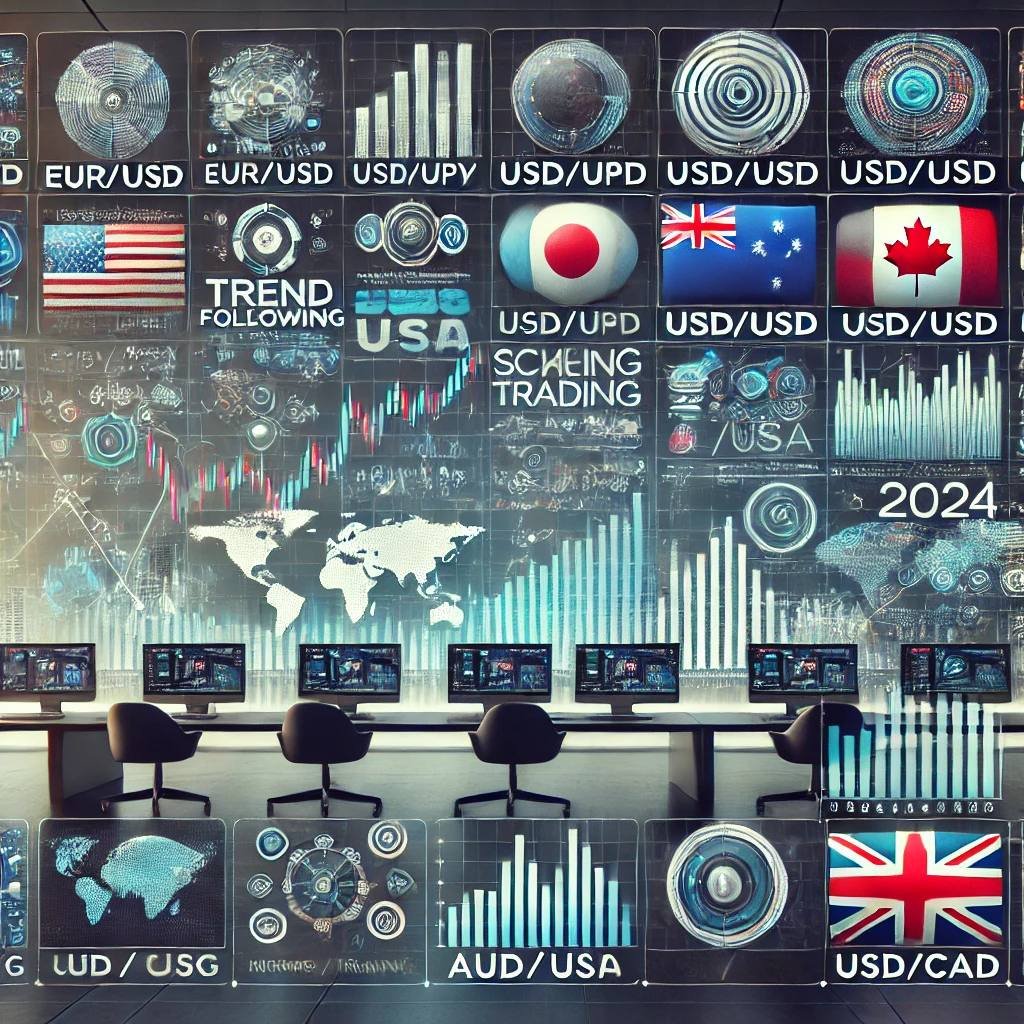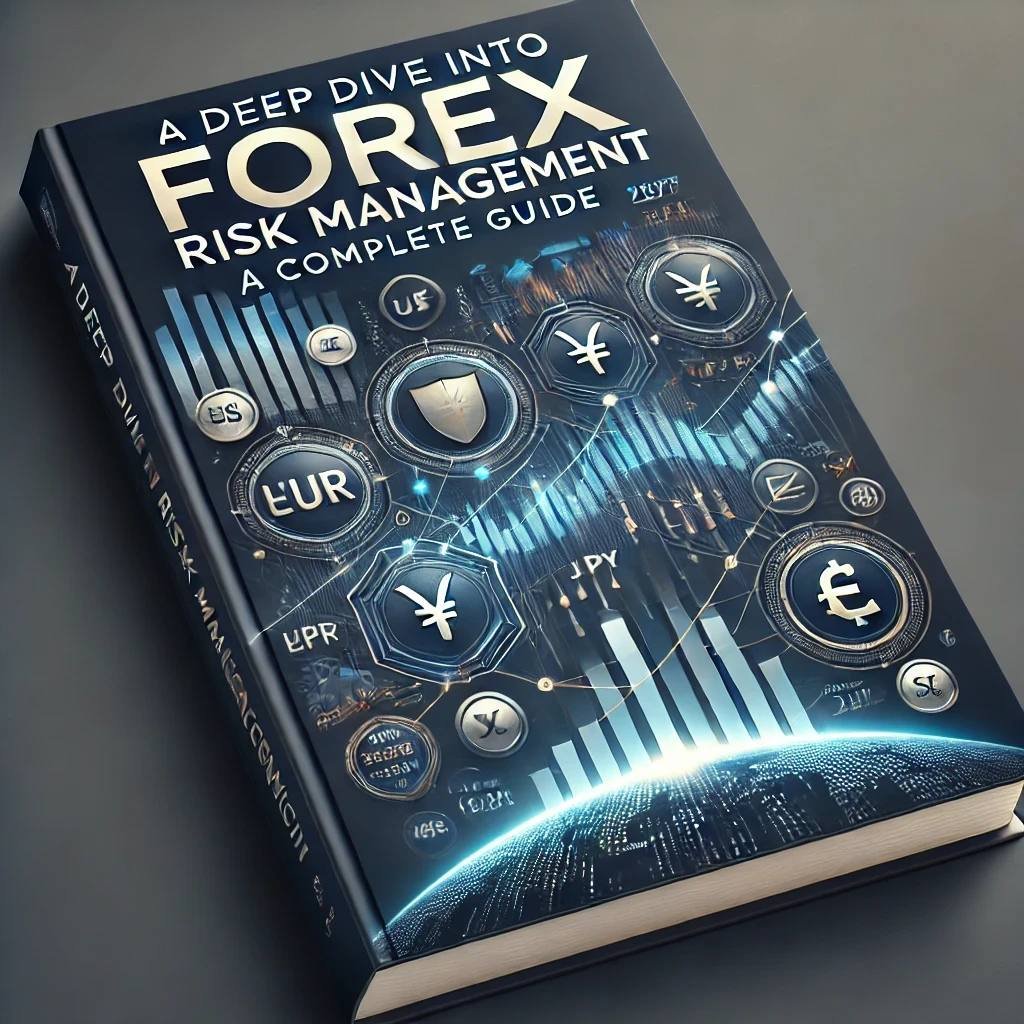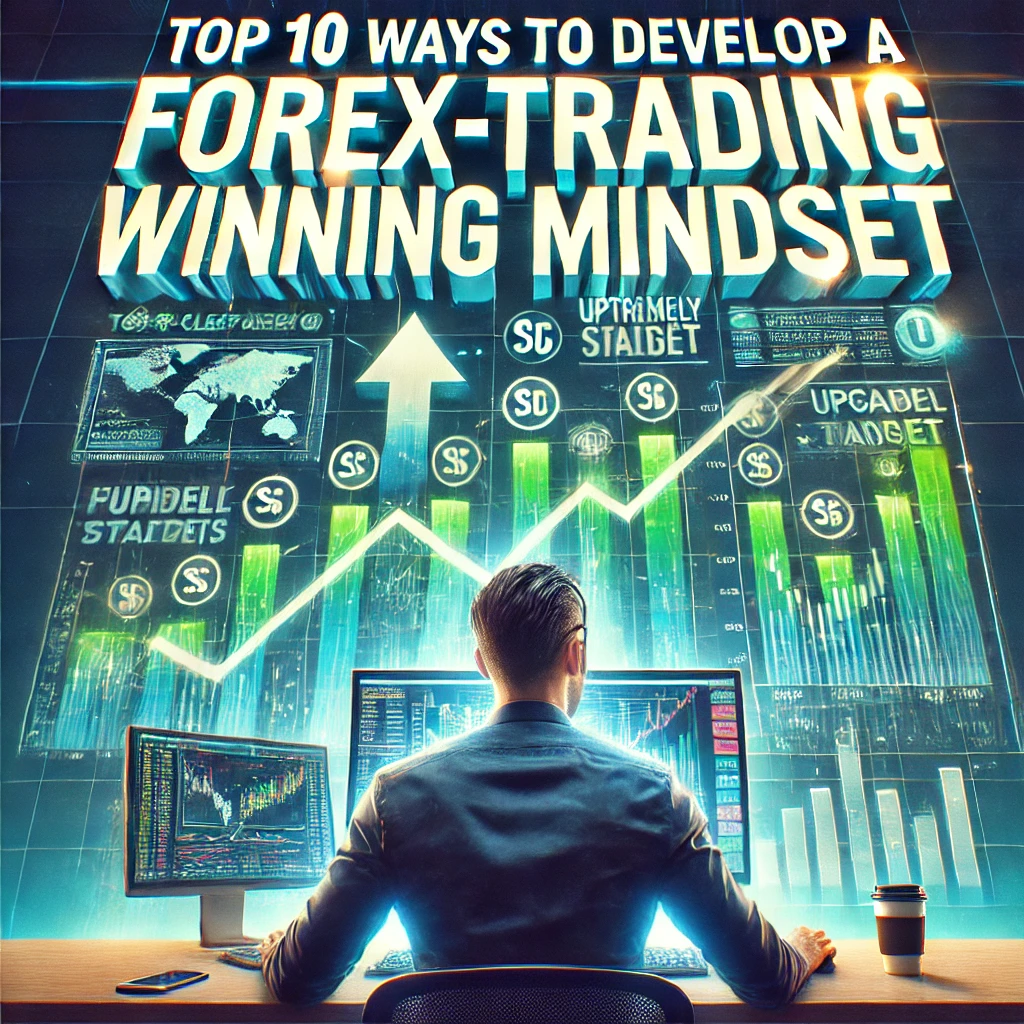Add My Watchlist
Remove My Watchlist
The Risks of Overtrading: Why Trading More Can Hurt Your ProfitsIt’s easy to think more trades mean more profit, but that’s rarely true. Overtrading—making too many trades—often leads to unnecessary losses. It can drain your account through fees, poor decision-making, and emotional trading. Understanding why overtrading happens and how it impacts your success is key to protecting your profits. This post explains the risks and how you can avoid falling into this costly trap.What is Overtrading?Overtrading happens when traders or businesses conduct excessive transactions, disproportionately increasing costs, risks, and inefficiencies. It’s often spurred by overconfidence, market volatility, or a misplaced belief that more activity means more success. However, this behavior rarely leads to the profits one might expect. To truly understand overtrading, it’s essential to break down its characteristics, signs, and causes.Photo by Artem PodrezCharacteristics of OvertradingOvertrading is not just about the sheer volume of trades or business dealings; it’s about crossing the threshold of what's sustainable. Common traits include:High Transaction Frequency: Traders open and close positions aggressively, even if market conditions are unstable.Reduced Quality of Decisions: Gut feelings replace research due to rushed actions.Overextended Resources: In business, cash flow and working capital are stretched thin as sales grow without proper infrastructure.Each of these points signals that both traders and businesses risk harming their financial health if they don’t rein in their activities.Causes of OvertradingWhy does overtrading happen? Several factors push individuals and organizations into this unproductive behavior:Emotional Drivers: Fear of missing out (FOMO), greed, and impatience can cloud decision-making.Market Volatility: Rapid changes can lure traders into reacting impulsively.Lack of Strategy: Without a clear plan, individuals fall into the trap of aimless activity.Overambition in Business: Companies might take on more orders or clients than their capacity allows, risking operational burnout.For more insights on the causes and outcomes of overtrading, check out this detailed Investopedia guide on overtrading.How to Recognize Overtrading EarlyRecognizing overtrading early can save significant losses. Common indicators include:Increasing transaction fees consuming profits.Constant monitoring of the market with little to no breaks.Minimal returns despite executing multiple trades.Inconsistent cash flow or mounting operational pressure in businesses.For business-related scenarios, understanding how overtrading impacts growth is crucial. Learn more in this article on American Express' business insights.By identifying the hallmarks and dangers of overtrading early, traders and companies can implement strategies to trade smarter, not harder.Why Do Traders Overtrade?Overtrading can be one of the most damaging habits for traders. It often stems from psychological and emotional missteps rather than calculated, logical strategies. Traders may confuse activity with progress, leading to a cycle of escalating mistakes that erode profits. Below, we’ll explore the core reasons traders fall into the overtrading trap and how these factors intertwine in real-world trading scenarios.Photo by AlphaTradeZoneEmotional Decision-MakingWhen excitement, fear, or frustration takes over, it often results in unnecessary trades. Adrenaline can make small wins feel like a green light to trade more frequently, while fear of missing out (FOMO) might push traders into risky, unplanned trades.For instance, consider a trader reacting to a sudden market dip. Instead of stepping back and evaluating the situation, they might impulsively buy or sell based on gut feelings. This tendency highlights the importance of managing emotions in trading. Exploring tools and strategies to regulate emotions can help traders avoid these pitfalls. Learn more about emotions in trading and how to manage them here.Chasing LossesChasing losses is a dangerous trading behavior fueled by the belief that another trade will "fix" a previous mistake. This mindset often leads to revenge trading, where emotions override logic. Imagine a trader who just incurred a significant loss; instead of stepping away, they enter more trades to try to recover. Unfortunately, this approach often results in even steeper losses.Traders who chase losses frequently ignore their pre-set trading plans and risk control measures. Without these boundaries, losses can spiral quickly. To address this, adopting strategies like strict stop-loss orders and realistic profit goals can help prevent emotional reactions. If this resonates, check out this great guide on how to stop chasing losses in trading.Lack of DisciplineTrading without discipline is like trying to navigate a storm without a compass. It’s one of the primary causes of overtrading. Lack of discipline often manifests through inconsistent strategies, overreliance on intuition, or trading outside of planned hours. For example, a trader might start the day with a solid plan but abandon it after seeing a sudden market movement that wasn’t part of their research.Discipline is built through practice and sticking to a well-crafted trading plan. Traders who maintain discipline are more likely to execute trades based on logic rather than impulse. If discipline is a challenge, consider reading this resource on improving trading discipline and consistency.By understanding these core drivers of overtrading, traders can identify when they’re falling into these traps. The next step is learning effective strategies to combat these tendencies, which we’ll explore in subsequent sections.The Hidden Dangers of OvertradingOvertrading can be a silent drain on your success. While trading more often might seem like the logical path to higher profits, it frequently results in just the opposite. This section explores four critical dangers linked to overtrading, highlighting why “more” is not always better in trading.Financial LossesOvertrading often leads to significant financial losses, even for experienced investors. Why? When you trade too frequently, the likelihood of poor decision-making increases. Not every trade is made with a clear strategy; instead, many are impulsive reactions to short-term market trends.Additionally, frequent trades amplify exposure to market risk. For instance, imagine buying and selling on minor price fluctuations. While a strategy like this might yield small gains, just one unfavorable trade could wipe out accumulated profit. Over time, losses can mount, leaving traders scrambling to recover.For a deeper dive into how overtrading impacts your balance sheet, read this insightful perspective on trading risks.Emotional TollTrading is as emotional as it is analytical. Overtrading amplifies stress and anxiety, especially when trades don’t perform as planned. The heightened pressure to recover losses or chase quick wins can ultimately cloud judgment.Consider how the emotional rollercoaster of excitement and fear affects decision-making. Traders may start doubting their strategy or second-guessing every move, leading to a vicious cycle. Over time, the mental strain can erode confidence and even lead to burnout. If these feelings sound familiar, it's essential to address them before they spiral. Explore more on managing the emotional toll of trading.Photo by MART PRODUCTIONIncreased Transaction CostsEvery trade comes with costs—often hidden at first glance. Transaction fees, spreads, and commissions can quickly eat into profits. Overtrading multiplies these costs, reducing the net returns on what might otherwise be profitable trades.For example, say each transaction incurs a $10 fee. Trading 50 times a month adds $500 in fees, even before considering potential losses. This creates a situation where profitability hinges not just on winning trades but on covering these escalating costs. Learn more about trading costs and their effect on profits.Burnout and FatigueConstant monitoring of markets and executing numerous trades can take a physical and mental toll. Staring at screens for hours, coupled with decision fatigue, can leave traders exhausted. Over time, this also impacts your ability to analyze markets or execute trades effectively.Burnout doesn’t just affect your trading but spills over into other areas of life, reducing overall productivity. Taking breaks and setting boundaries is essential to avoid running yourself dry. Discover strategies to overcome trading burnout.By understanding these dangers—financial, emotional, operational, and personal—you can make more informed decisions about your trading habits.Signs You’re OvertradingOvertrading can quietly erode your trading account while leaving you mentally and physically drained. Recognizing the signs early allows you to reset and get back on track. Below are some of the most common indicators that you might be overtrading.Excessive Number of TradesWhen you're making too many trades, it's often the first sign of overtrading. Trading excessively can stem from overconfidence after a profitable streak or from desperation to recover losses. This behavior quickly adds up in terms of transaction fees and risk exposure.Ask yourself: are you entering trades without real conviction or strategy? If you're unsure, take a closer look at your trade history. A frequent, reactive trading pattern often reveals itself.For more detailed insights, check out this article on identifying signs of overtrading.Photo by Tomas RyantIgnoring Trading PlansAbandoning your carefully crafted trading plan is another red flag. A trading plan is your safety net—it outlines your strategy, risk tolerance, and goals. When you start disregarding it, it's often because emotions—like greed or fear—are in control.Perhaps a sudden market movement tempted you to take an unplanned trade. Or, maybe you cut a losing trade short because watching its decline was too uncomfortable. Both scenarios suggest you're improvising instead of sticking to the plan.Ignoring your plan doesn't just harm individual trades. It builds poor habits that can affect your long-term success. If this resonates, explore strategies to regain focus in this helpful guide on avoiding overtrading.Constant Monitoring of MarketsIf you find yourself glued to the trading screen day and night, there's a problem. While staying informed is essential, obsessively monitoring the markets can lead to burnout—and to making impulsive trades based on incomplete or irrelevant data.Are you trying to catch every market fluctuation? This constant vigilance can trick you into thinking action is required, even when it isn't. It’s like watching every wave in the ocean and convincing yourself you need to ride each one.To regain perspective, consider stepping away or setting designated times to analyze charts. Learn more about why over-monitoring can be harmful in this expert breakdown on trading habits.By spotting these signs early—whether it's trading too frequently, ignoring your plan, or staying glued to the screen—you can take proactive steps to correct course. Recognizing these patterns is the first step in breaking free from the cycle of overtrading.How to Avoid OvertradingOvertrading can derail your trading success faster than a streak of bad luck. To prevent falling into this cycle, it’s crucial to adopt proven strategies and habits. By creating a structured approach, setting clear goals, maintaining discipline, leveraging technology, and taking time to reset, you can safeguard your trading career.Developing a Solid Trading PlanPhoto by RDNE Stock projectA trading plan is your playbook, guiding every decision you make. Without one, you’re like a ship sailing without a compass. A good plan defines when to enter and exit trades, how much to risk, and which markets to trade. By relying on this structured roadmap, you’ll be less tempted to take impulsive trades.Building a solid trading plan involves:Setting clear goals (e.g., daily, weekly, monthly profit targets).Defining strategies for market analysis, such as technical or fundamental methods.Establishing rules for risk management, including stop-loss and position sizing.If this sounds challenging, Schwab’s guide to trade planning is an excellent resource to help you start.Setting Realistic GoalsUnrealistic expectations can lead to frustration and overtrading. It’s tempting to aim for quick, massive returns, but trading isn’t a get-rich-quick scheme. Instead, focus on steady, consistent growth. Set daily or weekly goals based on what’s realistically achievable within your skill set and market conditions.Break larger goals into smaller milestones to keep yourself motivated. For example:Aim for a 2-3% account growth per week instead of chasing huge wins.Celebrate incremental achievements to stay positive and focused.Practicing Self-DisciplineDiscipline is the backbone of successful trading. Without it, even the best plans crumble. Self-discipline means sticking to your strategy, avoiding impulse trades, and keeping your emotions in check.How can you practice discipline?Enforce rules: Only trade setups that align with your plan.Use trading limits: Limit daily or weekly trades to avoid excessive activity.Log your trades: Track every trade to spot patterns in your behavior.For traders who struggle with consistency, practicing discipline might feel overwhelming at first. This article on overcoming overtrading offers actionable tips to help.Using Technology to Your AdvantageModern trading platforms and tools can simplify your workflow while reducing the risks of overtrading. Automated software, alerts, and data analytics can help you stick to your strategy and prevent emotional decisions.Here are a few ways to leverage technology:Set alerts for key price levels to avoid staring at charts all day.Use risk management tools like automated stop-loss features.Analyze performance with trade journaling software to uncover habits.Automation reduces room for error, keeping trades aligned with your strategy instead of gut reactions.Taking Regular BreaksTrading is mentally taxing. Without regular breaks, burnout becomes inevitable—and burnout often leads to poor decisions and overtrading. Stepping away from screens gives you a chance to reset and regain perspective.Here’s how to integrate breaks into your trading routine:Use timers: Set intervals for focused trading and dedicated breaks (e.g., 50 minutes trading, 10 minutes break).Step outdoors: A quick walk or stretch session can refresh your mind.Plan screen-free days: Periodically take entire days off to disconnect and recharge.By incorporating breaks, you not only improve mental clarity but also reinforce long-term sustainability in your trading habits.






